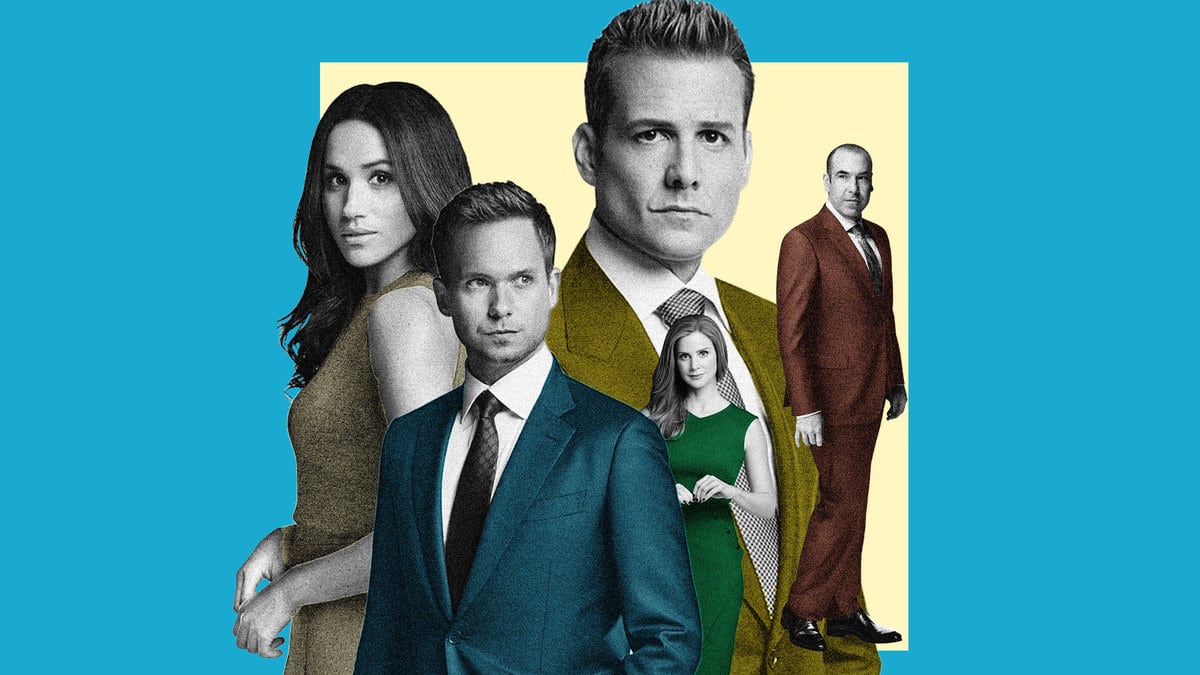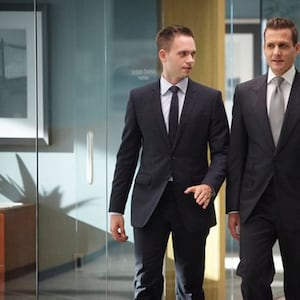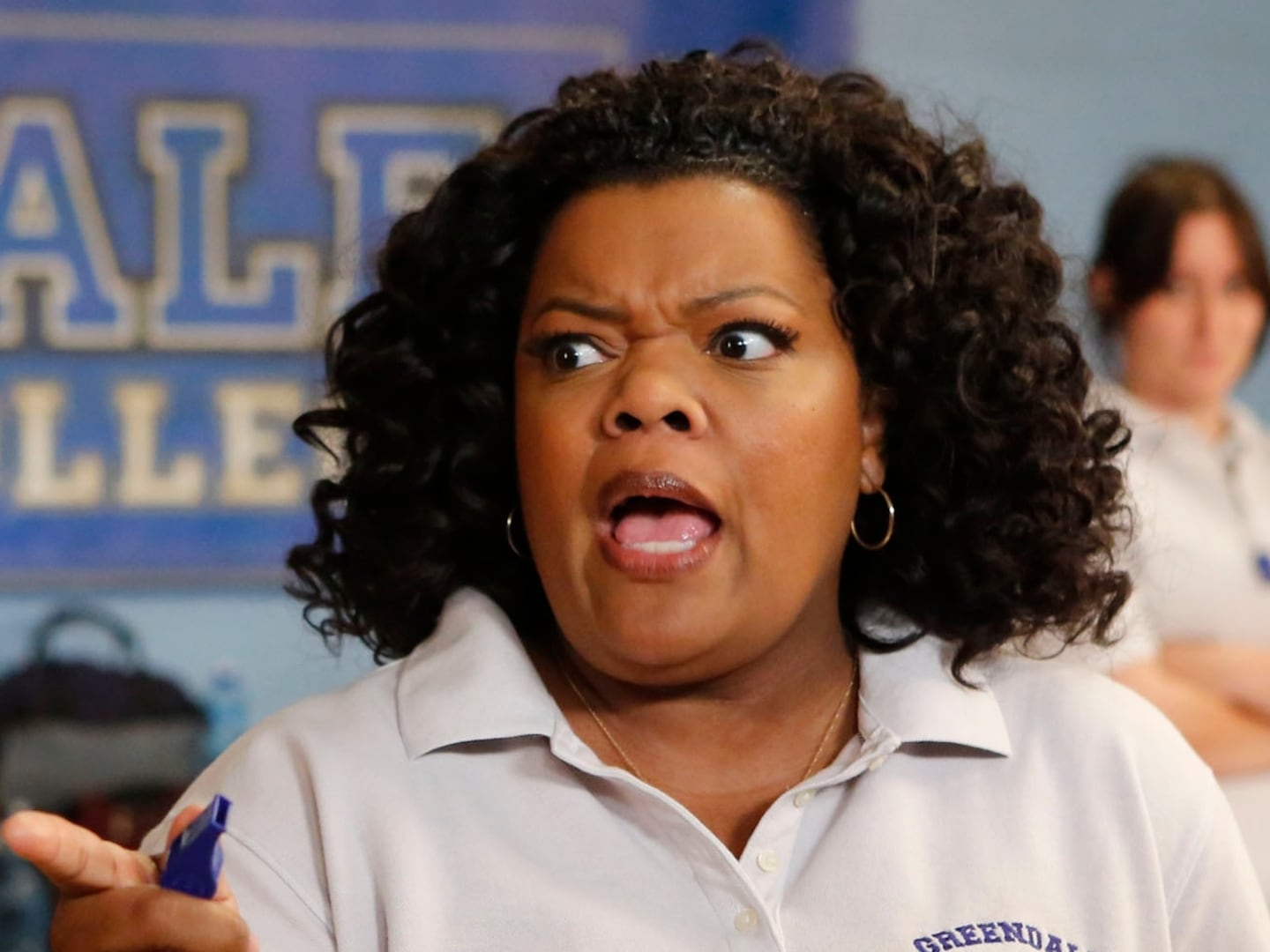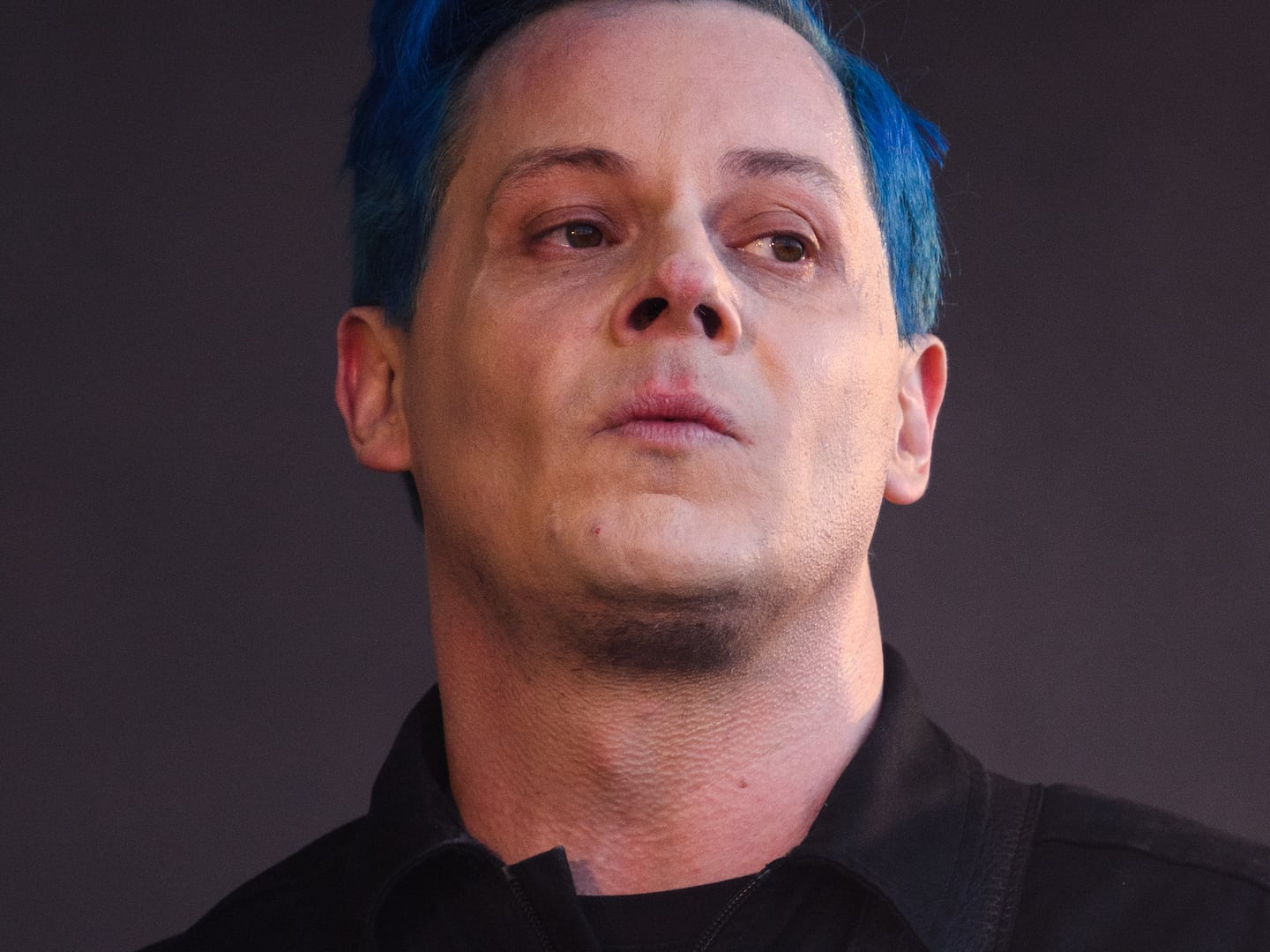In a truly unexpected turn of events, everyone is watching the 2010s legal drama Suits. Thanks to Netflix, the USA Network show has quickly become one of the most-watched shows of the summer, breaking several streaming records since landing on the platform in June. All of a sudden, social media is abuzz with people talking about how good the show is and how interesting it is to see Meghan Markle in her pre-royal era—four years after the show ended.
But I was skeptical of Suits’ recent resurgence, just as I was skeptical of the show when it initially aired. Not only had I heard rumblings that Suits’ later seasons got dry and boring, but I just wasn’t interested in watching what seemed like yet another formulaic legal drama. After all, who needs another one of those when there’s already an endless number of them I don’t have time for as it is? I also wasn’t sure if this newfound interest in a show that premiered 12 years ago was just due to people being desperate for content to watch amid the WGA strike, with many current, popular shows on pause with no return date in sight. But the continued excitement and seemingly random fuss over the series made me just curious enough to check it out.
Despite my trepidation, I’m so glad I jumped on the bandwagon: Much to my surprise, Suits is not just another dull procedural drama about a bunch of lawyers. It’s a witty and engaging show with an interesting angle that really hooks you in—even someone like me, who typically swears off shows like this at all costs.
Unlike most run-of-the-mill legal series, Suits is about someone who isn’t even an actual lawyer at all. The nine-season show, which ended in 2019 , centers around an incredibly smart, yet all-around regular guy, Michael “Mike” Ross (Patrick J. Adams), who quite literally stumbles his way into a job as an associate attorney at a prestigious law firm in Manhattan in the middle of a weed delivery gone wrong. Mike, an expert test-taker, is at a crossroads when the show opens: After having spent most of his adult life illegally taking the LSAT on behalf of prospective law students, he finds himself in need of $25,000 for his grandmother’s retirement home bill. His buddy Trevor (Tom Lipinski) offers to pay him the money in exchange for making a single weed delivery.
Even though that is an enormous amount of money, Mike still has to think about it for some reason—which was a little hard to believe. Somehow, he has to weigh the pros and cons of trading one illegal activity for another, even though it’s such an easy money grab. Most people would jump at the chance to make that much money for barely doing anything, but Mike eventually, begrudgingly agrees to do it..
When Mike shows up at the hotel where he’s supposed to drop the goods off, however, he realizes he’s been placed in the middle of a drug bust and quickly runs to the nearest conference room to evade the police. It is there that he stumbles into an interview for a law firm. Since he’s both wearing a suit and carrying a briefcase (for the drugs), he blends right in with the other white male Harvard grads who conveniently all look alike. He’s immediately ushered into the interview room where he meets corporate lawyer Harvey Specter (Gabriel Macht). But his cover is quickly blown when his briefcase pops wide open and reveals the weed, forcing him to admit that he isn’t really there for the interview and is just trying to hide from the cops.
If this were real life, this very funny and telling scene would end right there, with this unmasking as its punchline. But this is the magic of TV, so of course Mike, a college dropout and professional LSAT taker, gets a job he didn’t actually apply for. Harvey is so impressed with Mike’s extensive legal knowledge and almost photographic memory that he offers him a job, even without a law degree. The only catch is that Mike must keep his glaring lack of qualifications under wraps, or else risk losing his six-figure salary and ruining his boss’s reputation.

The result is certainly not a fantastic show, but it’s also never boring or predictable. I was surprised to find that the first season strikes a perfect chord of comedy and drama, making sure not to overwhelm viewers with an excess of legal jargon. Instead of offering a realistic representation of corporate law, as I had expected, Suits very purposefully showcases a fantasy of everything you probably shouldn’t do as a lawyer, including shaky ethics, ultimatums, and impersonating a federal agent. Every episode is far more amusing and even intriguing than I could have ever imagined a show like this—one that looks like a legal procedural on the outside—to be.
Every episode, Mike and Harvey both take on new and interesting cases, with Ross stuck doing his boss’s less than desirable pro bono work, which forces him to do things like go to housing court. In the midst of these cases, there’s a fair amount of witty one-liners from Specter that will make you laugh out loud. Since Mike is still a newbie to lawyering, however, he leans on Meghan Markle’s character Rachel Zane, a paralegal who has her own office, as a walking encyclopedia, asking her how to file subpoenas and explain nearly everything about the law that he didn’t already memorize from reading LSAT prep books. In the midst of all this, the two have a major will they/won’t vibe and even eventually end up getting together. Big surprise there! And yet, somehow, I’m here for it.
While my appreciation for this relationship came as a welcome development, what remains frustrating to me is the show’s treatments of its female characters. It’s not a shock to say we’ve come a long way since 2011, when Suits premiered, in terms of how women are portrayed on screen. But even in hindsight, the way Suits sees its female characters more as supporting characters rather than dynamic, respected lawyers and paralegals in their own right bothered me. For instance, the sheer number of times Mike asks for Rachel’s help is alarming and, honestly, annoying. She has her own work to do, Mike!

This frustrating characterization is also exemplified in the strange rivalry between Harvey and his colleague Louis Litt (Rick Hoffmamn) throughout the show, which the firm’s managing partner Jessica Pearson (Gina Torres) has to try to smoothe over, for some reason. Despite being the boss, Jessica spends much of the first season attempting to appease the egos of both men, who are constantly butting heads and trying to compete with each other—all over a promotion Harvey received in the pilot. While this rivalry does help drive the plot to some extent, in that Louis uses his beef with Harvey to haze Mike, it’s not clear why Jessica needs to waste so much time on their childish back and forth. This is one of several parts of the show that hasn’t aged well, and it can often be irritating to watch. Thankfully, the first season doesn’t waste too much time on these scenes—proof that Suits knows how to hold itself back when needed.
Suffice to say, Suits doesn’t quite pass the Bechdel test, which I wish were surprising. But I still found myself unable to stop watching once I started, much to my own shock. While I initially assumed the acting would be stale, the plot would be much too obvious, and the comedy would be a little too surface level, I was pleased to discover just the opposite. The wittiness of the dialogue truly helps bring the show to life and the intrigue of the plot keeps it going. Not to mention, Gabriel Macht’s performance as Harvey is just phenomenal. The way he embodies Harvey’s sheer arrogance, snarkiness, and secret inner generosity consistently impressed me. Sure, I had to suspend my disbelief more than I usually do when I watch dramedies, especially during any scene with Rachel and Jessica, but the quality acting and writing made this easier to forgive than I could have ever expected.
What I like most of all is what I think has made Suits such a streaming phenomenon—and why I’ve found myself watching all 12 episodes of Season 1 in just a matter of days: This is a series built for passive viewing. You just don’t have to focus on paying attention too much to know what’s going on; a lot of people like that when watching television, including me. It’s nice to just have a show that is funny and surprising yet not too plot-heavy playing in the background, and Suits is perfect for that. There are also plenty of episodes to be able to put on and do just that for hours on end. It reminds of fellow Netflix-user favorites Schitt’s Creek and The Office in that way: While the shows are by no means the same, they all offer a similar kind of smooth-brain comfort, which I certainly didn’t expect from Suits.
Suits offers viewers an interesting mix of relaxation and engagement that is reminiscent of many shows of that decade, like Grimm and New Girl, which I and many others have dearly missed. And unlike the endless predictability and monotony of the Law and Order franchise, which I expected it to be akin to on the surface, Suits is actually fun—and it runs with that. Instead of getting too bogged down in the details and the legalese of it all, Suits leans into the hyper unrealistic elements that make it so entertaining.
While I was so ready to write it off as just another boring procedural, I’ll be the first to admit I was wrong: Suits is legitimately delectable comfort food, one that I—and likely many others—prematurely misjudged. And while I’m sure this won’t make me a fan of all mid-tier USA Network shows, I’m very glad I allowed myself to set my preconceived notions aside and enjoy this truly silly and entertaining show, just like everyone else is right now. If anything, I’m judging myself for judging it in the first place.








